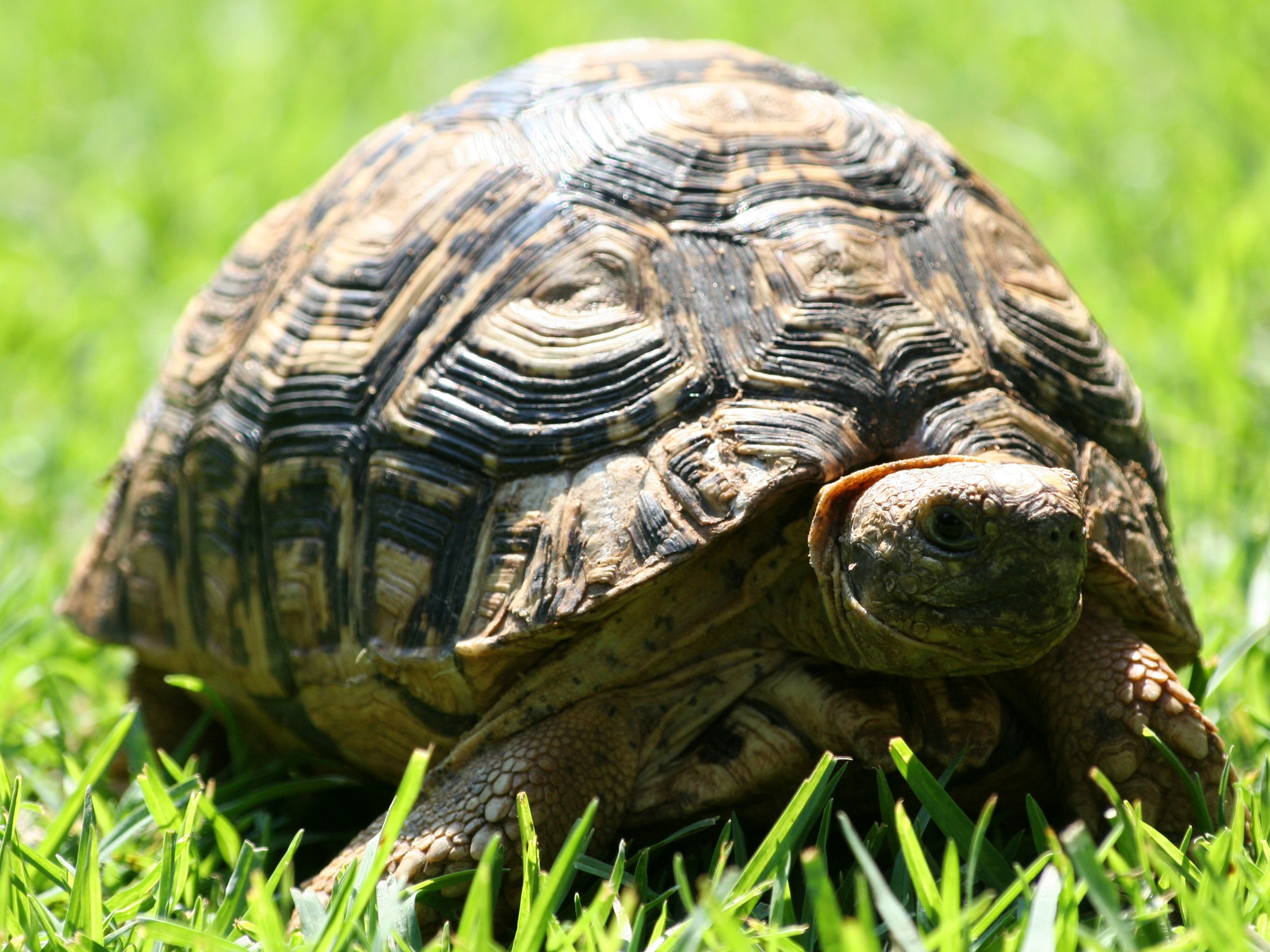Weird Tech: The GPS-assisted cannabis-hunting tortoise
Plus: Why World of Warcraft makes you a superior scientist

It's been a strange week for tracking tech. In an unlikely turn of events, police arrested a suspected marijuana-grower after a box tortoise with a GPS tracker attached to its shell accidentally strayed (slowly) into a secret cannabis patch.
The tortoise was being tracked for "research purposes" in a park in Washington DC, local news reported Wednesday. A ranger in charge of the reptile made the discovery when he retrieved it from a remote area of the park. US Park Police set up surveillance and later arrested a 19-year-old teenager on suspicion of growing the plants.
The week's strangest stories, all in one place…
And as we've already reported today, tracking tech is making the news elsewhere. Affluent Mexicans are so scared of soaring kidnappingrates that they are paying thousands of dollars to have tiny transmitters implanted underneath their skin, to enable satellites to help find them.
Ranking with Iraq and Colombia as being among the worst countries for abductions, kidnapping shot up almost 40 per cent between 2004 and 2007 in Mexico. Mexican security firm Zega, which designed the chip, claims its sales have leapt 13 per cent this year. The company says it has already injected over 2,000 clients with the crystal-encased chip.
Sadly, critics have labelled the chip as "little more than a gadget that serves no real security purpose". For the chip to work, the client must also be carrying a larger device containing a global position system. This receives the radio signals transmitted from the chip, broadcasting them out to the nearest satellite, helping pinpoint the victim's location. It's brilliant, then, until the kidnappers remove the device.
Gadget therapy
Get daily insight, inspiration and deals in your inbox
Sign up for breaking news, reviews, opinion, top tech deals, and more.
The Wii Balance Board/Google Street View device wasn't the only useful mod we saw this week: introducing the solar tie that recharges your phone. Having harnessed digital textile printing so that fabric can be printed that matches the pattern of solar cells, and then be attached via a 'liquid stitch' method, the end product is discretion personified. Not only does it function as a tie, it also charges your mobile. What a combo.
However, all this could be eclipsed with the Bio Energy Discovery Kit. Able to directly convert alcohol into electricity, its makers have hailed it "the fuel cell industry's first direct ethanol product". The tech could be the first step towards replacing conventional batteries in portable devices, like your iPod or mobile phone charger. They'll run non-stop for days on end – if you're prepared to sacrifice your drinks cabinet, that is.
And finally…
It seems that playing and talking about World of Warcraft can encourage scientific thinking. After studying a sample of 2,000 chatroom posts, researchers at the University of Wisconsin have concluded that "forum and game-based learning could supplement textbooks and science labs in fostering scientific thinking and problem-solving ability".
According to the results, WoW stimulates chats involving maths and problem-solving, encouraging scientific thinking. "These forums illustrate how sophisticated intellectual practices to improve game play mimic actual scientific reasoning," said researcher Sean Duncan this week. So next time you're up all night on WoW or the like, remember: gaming is good for you.

Julia specialises in ecommerce at Future. For the last four years, she’s split her time between leading TechRadar’s crack team of deal editors - covering all the biggest sales of the year including Black Friday, Cyber Monday and Amazon Prime Day - and helping the audiences of Future’s consumer tech and lifestyle brands (TechRadar, Tom's Guide, T3, Marie Claire, Woman & Home and more) find the best products and services for their needs and budget.
A former editor of global design website Creative Bloq, she has over 15 years’ experience in online and print journalism, and was part of the team that launched TechRadar way back in the day. When she isn't reviewing mattresses (she’s tested more than she cares to remember), or sharing tips on how to save money in the latest sales, she can usually be found writing about anything from green energy to graphic design.